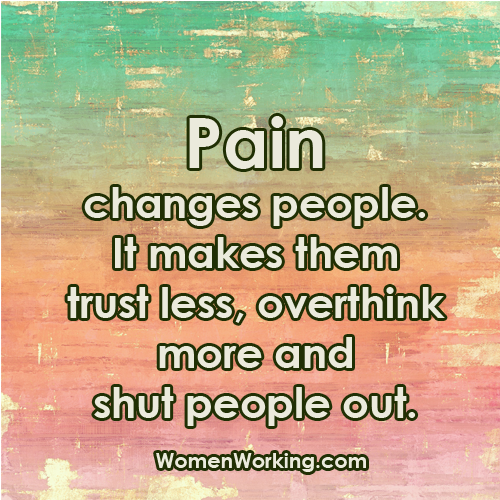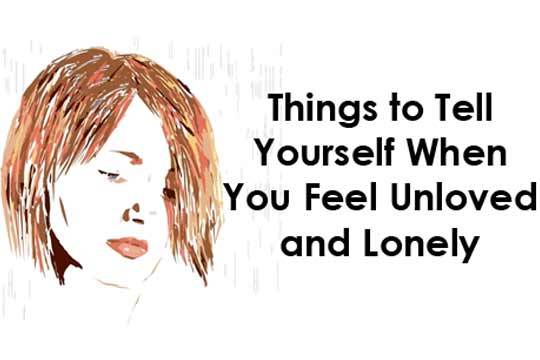Helene Lerner's Blog, page 6
July 21, 2016
4 Signs You’re Just Being Paranoid

Do you find yourself constantly anxious, feeling like someone is out to get you or that the worst is about to happen? You find yourself stressed over what hasn’t even happened and may not ever occur. Is there any real justification for that? Dr. Shahram Heshmat, an expert on addictive behavior, says a paranoid person “[is] someone who feels excessively suspicious without justification, and/or that others are plotting against [them]. They read far too much into everything people say and are quick to criticize, but they are not open to criticism themselves.” These are tell-tale signs of paranoia:
You sneak around
Maybe you suspect your partner is cheating, so you check their phone whenever you can. Maybe you’re snooping around your co workers’ desks because you think they might be up to something. First, ask yourself--has anything happened that gives you a reason to worry? If so, think about it--was it really a big deal? Many times, it isn’t.
You don’t trust when someone gives you a compliment
Are you ever suspicious when a coworker praises you for a job well done or when a friend tells you she likes your new haircut? If so, you probably think that person has an ulterior motive. This is when you really have to be honest with yourself about why you think that’s the case. More than likely, you’re reading between the lines to find something that’s probably not even there.
You blame other people for your misfortune
Dr. Heshmat says a paranoid person will “explain negative events (e.g., losing a job) by attributing them to the malicious intentions of others rather than worrying about whether they are inadequate in some way.” In other words, whenever something bad happens, paranoia can cause you to blame it on someone else instead of taking ownership of your mistakes.
You seek out disapproval
If you’ve made a small error, you quickly become wary that the world is turning against you. Dr. Heshmat gives the example of making a mistake at work and then assuming that your boss is upset, so you look for hints that you’re boss is disapproving of you. Sometimes, though, the hints aren’t even there and you’re imagining it.
- Barbara Bent
How To Get People To Stop Underestimating You

You have goals, you’re smart, and you’re ambitious. Yet, there is something about how you present yourself to others that cause them to underestimate your capabilities. If you have difficulty knowing what to do or how to respond when you find yourself in this situation, here are some important tips to help others see what you’re capable of:
Take a good look in the mirror: As much as we would all be better served in a world that didn’t put so much emphasis on outer appearance, the reality is that we all get judged by so many external aspects of our make-up. While these judgments are purely biased and many times may not provide insight into a person's character or capability, it’s important to present as someone that is confident if you want to be entrusted and want to obtain your ambitions. So, ask yourself how are you coming across to others? Do you portray yourself in a manner that suggests you feel unqualified? If so, it's time to work on creating a professional stance that exudes determination and sureness.
Talk to yourself like you would your best friend: Far too often, we are extremely hard on ourselves. If you are full of negative self-talk and overly critical of yourself, then it’s time to have a different conversation with yourself. You would never say the harsh things you say to yourself to your best friend because you know that would likely cause your friend to doubt herself. So, how can you expect to come across as someone who is in control and full of confidence if you are constantly bombarding yourself with negative talk? Instead, start talking to yourself like you were talking to your best friend and trying to encourage her in her next endeavor. As you grow more self-assured, others will be less inclined to doubt your qualifications.
Be clear and assertive in your language: The way you choose to communicate your thoughts and ideas is critical if you want to ensure that your capabilities are not being miscalculated. Obscure and unsure language that is riddled with conditional verbiage is a disastrous cocktail for undermining yourself. Stop speaking in a way that suggests you have questions and doubts about your position. For instance, do you say things like, "I was just wondering..." or "I kind of think that..." This style of communication immediately strips away your power. Instead, be concise and assertive in your communication. Use “I” statements framed in affirmative sentences that demonstrate you are confident about your idea or thought. For instance, instead of saying, “if you were to consider working with me, I kind of think I could complete the project in less time than…” Instead say, “When you choose me to manage this project, I can assure the deadline will be met by…”
Actions speak louder than words: It may sound cliché, but it's true. The sure-fire way to silence all the naysayers about your ability is to prove them wrong through your actions. So, ignore and block out the chatter of critics and get to work on executing that plan of action. Create measurable and clear goals that when met, will censor the cynics for good.

- Cynthia Santiago, empowerment coach and founder of Latina Wellness
July 20, 2016
When Is It Okay To Cry At Work?

Like so many aspects of this culture, crying somehow became a taboo at work. And, yet, the very act of crying is not that different from any other expression of emotion, such as laughter when we find something funny. Then why has crying become such a questionable, disparaging act of self-expression? The answer lies in the belief that crying somehow demonstrates weakness or being overly emotional. Nonetheless, the act of crying is deeply biological and can emerge equally during times of sorrow and anger or during moments of joy. So, while, we continue to live in a society that frowns upon crying, especially at work, there are times when crying may be the best response you naturally produce. Here are some of those times:
Because you genuinely care: The irony of our professional lives never ceases. Employers want passionate, inspired people, and, if your crying is related to your deep concern, care, and passion for a project or initiative then, well, it's probably safe to let the tears flow.
When it demonstrates emotional intelligence: In a world that is starting to finally acknowledge that intelligence is not just about how much information you can spew out or about how many books you've read, emotional intelligence has become increasingly valuable. The ability to read, interpret, and create emotional connections with colleagues and clients is a priceless commodity. If crying is the result of your high level of emotional intelligence, then suddenly your tears may be an asset and not a deficit.
When you have an empathic response: One of your colleagues breaks down in tears. You suddenly find your mirror neurons responding to their biological mandate by crying in return. This can be a bonding experience, and your colleague feels understood and supported. A positive side effect of this type of crying can also build trust between co-workers.
When it helps you release repressed emotions: Crying can be a direct response to frustration and anger, and, frankly, it is probably wiser to release a few tears when you're frustrated and angry in a work situation then to completely blow your stack. Crying can also help relieve elevated stress levels. In this case, you may want to politely excuse yourself and head to the restroom to release those pent up emotions.
When it's connected to your professional growth: Your career advancement is important to you, and you find yourself deeply appreciative of opportunities to continue on the trajectory of your corporate climb. You are a diligent worker, and you put a great deal of passion into all aspects of your work. This results in you getting a promotion and being acknowledged for your work. Tears of gratitude and appreciation are wonderful for you and those around you, so, don’t be afraid to share those joyous tears.

- Cynthia Santiago, empowerment coach and founder of Latina Wellness
July 19, 2016
Why Strong Women Value Time Alone

In a chaotic world filled with distractions, time alone is priceless. Some people feel uncomfortable without a group around at all times, but in fact, it’s healthier to fly solo every so often. These moments as opportunities to reflect, regroup, and grow. Here’s why:
You become more independent
As you get comfortable with being alone, you find that you don’t need other people to validate you. Social media can be a big distraction, and we may judge ourselves based upon what family, friends, and celebrities are doing. This diversion can be interesting at time, but in the long run it’s not that satisfying.
You find peace of mind
When you give yourself time to reflect you may find a greater sense of calm. This is because you’re not surrounded by the distractions of other people and their problems. Psychologist Sherrie Bourg Carter said, “When you’re part of a group, you’re more likely to go along with what the group is doing or thinking, which isn’t always the actions you would take or the decisions you would make if you were on your own.”
You can work out a problem
If you find yourself anxious, you may be thinking of the past or of things that haven’t happened yet. It’s useful to bring yourself back into the present moment by focusing on your breath. From a centered place, you can see what you’re really afraid of and confront it.
You can boost your creativity
Some might say that the best ideas are born in the shower. This is just one example of how you can tap into your creative brain by being alone. Try a new hobby you haven’t explored. You can really learn something when you have the freedom to do what YOU want without being pulled in different directions.
You realize you’re enough
When you’re alone, you begin to realize what really matters and what you need to make you more fulfilled and happy. People walk in and out of your life, exciting times come and go, but you will always have yourself. Be your own best friend.
- Barbara Bent
6 Non-negotiable Promises You Make to Yourself

We make promises to many people in our lives. But perhaps the most important ones we make are to ourselves, and they’re the ones we really ought to keep.
Be there for the people you love
Even if you can’t physically be there when someone close to you is suffering, you can do little things to show you care. Give that person a call, write a note, make yourself emotionally available. Reach out every now and then to remind them that you love them.
Give yourself some alone time
It’s healthy to have time to yourself without interruptions from work or home responsibilities. Be selfish and do what YOU want to do. Go to a museum, read a book, disconnect with your cell phone for a few hours. This sort of reflective time can help you clear your mind and recharge.
Stand up for yourself and what you believe in (even if people try to discourage you)
No matter what, don’t let anyone walk all over you. When you feel strongly about an issue, you have every right to fight for it. People may not take you seriously, but don’t let their words bring you down. Defend yourself just as you would defend someone you care about.
Learn something new
Maybe you’ve been dying to try yoga or learn how to speak Portuguese. Whatever it is you want to explore, go for it. When you take on a new challenge, you’re allowing yourself to grow your talents and experiences.
Keep going, especially if it matters to you
When you start a project that matters to you, finish it. Even if you’re criticized or discouraged, don’t give up. You gain strength through discipline and will learn more about yourself when you work through something difficult.
Don’t take anything for granted
Be thankful for what you have. You’ve worked hard and deserve to be happy, but keep in mind there is always room for improvement. Try to live in the present moment without dwelling too much on the past and the future.
- Barbara Bent
Pain Changes People

Pain changes people. It makes them trust less, overthink more and shut people out.
July 18, 2016
Personal Mantras of Highly Successful Women

One quick way to get inspiration is to reflect on a “mantra,” or a personal motto that you identify with. When you’re feeling overwhelmed, repeat the motto to yourself as a reminder that you can persevere. Here are some mantras of famous women to inspire you:
1. “No matter what happens in life, be good to people. Being good to people is a wonderful legacy to leave behind”
- Taylor Swift
2. “She turned her can’ts into cans and her dreams into plans”
- Miranda Kerr
3. “The Universe is an awesome party where we must dance together to truly enjoy it.”
-Shailene Woodley
4. “Beautiful people do not just happen. Life created them through their own experiences. Let your scars, visible and internal, create the beauty in YOU.”
- Khloé Kardashian
5. “Spend less time tearing yourself apart, worrying if you’re good enough. You are good enough.”
- Reese Witherspoon
6. “If you are content, that’s probably not good enough.”
- Ivanka Trump
7. “If you’re too comfortable, it’s time to move on. Terrified of what’s next? You’re on the right track.”
- Susan Fales-Hill
8. “If you’re feeling low, don’t despair. The sun has a sinking spell every night, but it comes back up every morning.”
- Dolly Parton
9. “No one will take care of you if you don’t take care of yourself”
- Alicia Keys
10. “It’s never too late--never too late to start over, never too late to be happy.”
- Jane Fonda
11. “Make the right decision even when nobody’s looking, especially when nobody’s looking, and you will always turn out okay.”
- Oprah
Things to Tell Yourself When You Feel Unloved and Lonely

Being alone is healthy, but there is a clear difference between enjoying time to yourself and feeling truly lonely. Loneliness has different shades of grey and sometimes we may start to imagine things about ourselves or other people that aren’t true, and it can feel very isolating. If you have good friends to reach out to, this is the time. But in any case, the following points can be soothing when you feel so alone*:
You always deserve happiness, even when you feel you don’t
Have the courage to ask yourself what is missing in your life. Watch out for negative thoughts which will probably come up. Keep thinking about small actions you can take to manifest what you truly want.
It’s part of life
The famous French poet Jean la Fontaine once said, “Sadness flies away on the wings of time.” When you’re feeling blue, know that in most things, there’s a beginning, middle, and end. Tomorrow is a new day and hopefully a better one. Focus on that--you have the power to think positively.
You are enough
When we’re feeling bad about ourselves, we usually don’t feel like we have much to offer, but that’s a lie. You have talents to contribute. Connect with some of your strengths. If you have to, write them down. Although you don’t feel it, you have a lot to give.
You can still make a change
Perhaps you feel stuck, but that doesn’t mean you can’t change things for the better. Don’t isolate. Reach out to someone you care about or try to get involved in helping someone else. Sometimes when you give of yourself, you’re reminded of the truth of the situation that your loneliness will pass.
*If your loneliness becomes extreme, it may be important to seek professional help from a therapist or counselor
“If love is universal, no one can be left out.” -Deepak Chopra
- Barbara Bent
Benefits of Drinking Infused Water

Water is vital for our bodies to function properly. According to the Centers for Disease Control and Prevention, drinking water lubricates your joints, keep your body temperature normal, and gets rid of wastes. It’s easy to get dehydrated in the summer when you’re sweating in the heat. But some people don’t like guzzling just plain water--it’s boring. Dr. Oz recommends infusing it with fruits, vegetables, and herbs to add flavor and even provide extra health benefits:
“Berry Blast”
Dark berries, like blackberries, are rich in antioxidants that can help you age better. Freeze the pomegranate seeds and slice the other berries. Add the berries to the water and let them soak for four hours. Add in the pomegranate seeds and enjoy.
-2 quarts of water
-2 cups of pomegranate seeds
-1 cup of blackberries
-1 cup of blueberries
“Citrus Sensation”
Bloating is an uncomfortable sensation caused by too much salt, hormone fluctuations, eating too much at once. Cucumbers and lemons are water-rich foods that fight this feeling. Simply combine the lemon and cucumber and let them sit in the water overnight. You can even store this drink at room temperature for a few days.
-3 quarts of water
-½ cucumber
-10 or 12 mint leaves
-2 sliced lemons
“Tangerine Weight-orade”
Boosting your metabolism is a healthy way to lose weight if you need to. Tangerines can trigger our body to burn fat faster while green tea is known to jump start metabolism. Stir the ingredients together and let them sit overnight. Drink one pitcher each day for the best results.
-1 sliced tangerine
-Handful of mint leaves
-8 cups of brewed green tea
- Barbara Bent
How to Deal with Racism at Work

Racism is probably one of the most difficult subjects to discuss in the workplace. Emotions run high in this topic area, and, while many people believe that the days of overt, outright racial injustice are gone, nothing could be further from the truth. Racism rears its ugly head in so many ways these days, from biased treatment to microaggressions. Dealing with racism and racial tensions at work is a tricky matter. This deeply embedded and challenging issue cannot be dealt with in one quick blog post, but if you are experiencing racism at work, consider the following strategies:
Ask the question: This is probably one of the most effective ways to combat racist comments. Unfortunately, racism is so ingrained in American culture that a lot of people are not even aware when they're making racist comments. If you find yourself in this situation, you can simply ask, "what do you mean?" This forces the person making the comment to consider what they are saying and takes the onus off of you to respond to their comment.
Do not dismiss your feelings or experience: If you think that someone's behavior or comments were racist in nature, then you are probably correct. All too often, those who are experiencing the racism are told that they are too sensitive or that they are overreacting. One of the insidious aspects of racism is the constant negating of people of color and their experiences. Do not allow anyone to make you feel like your experiences are not valid or important.
Find safe spaces to talk: One of the ugliest aspects of racism is its ability to make you feel isolated and alone. Do not allow yourself to sit with all the negative emotions that come out of a racist encounter. Find someone who understands what you are going through and will support you. Be mindful who you choose because you don't need to speak to anyone who is going to invalidate or try to minimize your experience.
Stay calm: While this can be incredibly difficult to do, it is important to manage your emotions and remain in control of the situation. All too often, any demonstration of anger or rage on your part will only distract from the person perpetuating the racist comment or behavior. Staying calm will also allow you to stay empowered even in this unjust situation.
Speak up: Educating others about racism is exhausting, and yet it can be a vehicle for change. While you are under no obligation to teach others, it may be empowering for you to inform your colleagues about how their comments or behaviors are affecting you and the work environment.
Request training: There are numerous professionals and organizations that provide professional development training in cultural diversity and equity for companies. You can suggest that your company consider this option as a way to create a healthier and more congenial work environment.
Keep a journal: Sometimes, after you have tried numerous strategies, there will be a colleague or boss who continues to bombard you with microaggressions or make racist jokes or discriminate against you. When you see a pattern and when your attempts to address the issue does not seem to make a difference in their behavior, it is time to start documenting what is happening. Do this quietly and privately because you may need to use this information in the future.
Report to HR: While no one wants to be in this position, there comes a time when this may be your only option. This course of action will likely cause backlash, so you have to understand this and prepare for the stigma, hostility, and other negative consequences that may result from your report. That said, you have the right to protect yourself, and if you find you have no other options, then seek guidance from your HR Manager.

- Cynthia Santiago, empowerment coach and founder of Latina Wellness
Helene Lerner's Blog
- Helene Lerner's profile
- 9 followers



